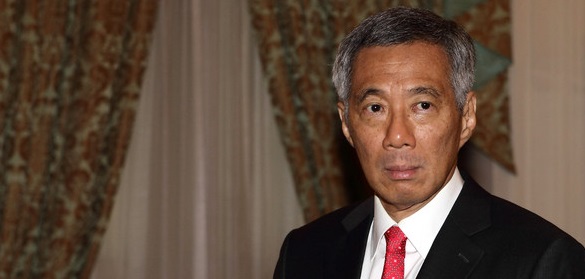The following article written on 27 March 2011 is republished here with permission from Amnesty International.
BY SALIL SHETTY

Last March, when Andrei Zhuk’s mother brought one of her usual food parcels to the prison in Minsk, she was turned away.
Her son ‘had been moved’, officials told her. She should not come looking for him anymore, they said, but should instead wait for notification from the court.
Three days later, she was informed by prison staff that her son and another man, Vasily Yuzepchuk, cell mates on death row for separate murders, had been shot. Officials refused to return Andrei’s body or belongings, or even to say where he had been buried. She was shocked. Her husband suffered a heart attack upon hearing the news.
The executions were the first in Belarus – the last executioner in Europe and the former Soviet Union – in more than a year.
They stood in stark, disturbing contrast to the rising tide of world opinion that has seen a growing list of countries abolishing the death penalty in either law or practice.
But while an overwhelming majority of countries around the world have stopped executing, some, like Belarus, defiantly resist. They claim popular mandates, crime deterrence or religious, cultural or political principles as justifications. But whatever their reasoning, they account for thousands of deaths each year involving this most cruel and inhumane punishment.
In 1977, when Amnesty International began its global campaign against the death penalty, it had been abolished by only 16 countries. Now, as the organization’s annual report, Death Sentences and Executions 2010, shows, nearly a hundred countries have stopped using it for all crimes, with 139 ending it in law or practice. And there are other encouraging milestones.
Mongolia implemented a moratorium on executions and Gabon abolished the death penalty in law in the past year. Even in countries where support for the death penalty remains strong, such as China, Kenya, Guyana and Bangladesh, positive steps are being made towards bringing its use in line with human rights standards. More states than ever before voted at the UN in favour of a worldwide moratorium on executions. And in 2011, in the United States, Illinois became the 16th state to abolish the death penalty.
But the state-sanctioned killings continue. There were at least 527 executions in 22 countries in 2010, not including the thousands thought to have been executed in China. And more than 2,000 new death sentences are known to have been handed down, bringing the total to nearly 18,000 people on death row worldwide.
In 2010, prisoners were beheaded, electrocuted, hanged, given lethal injections or shot at close range to the back of the head or the heart or by firing squad. Sometimes the sentences were carried out in public.
Countries that insist on using the death penalty continue to claim that they use it only in accordance withinternational law.
But most of their actions blatantly contradict these claims.
In reality, many of these countries use the death penalty as a convenient way of getting rid of troublesome people and showing that authorities are tough on crime. It is often imposed after unfair trials and based on confessions extracted through torture. It is often used against political opponents, poor people, minorities and members of racial, ethnic and religious communities. It is sometimes even used against people who allegedly committed crimes when they were under 18 or who have significant mental impairments.
Worryingly, death sentences are handed down for acts such as fraud, sorcery, apostasy, drug-related offences or sexual relations between consenting adults, which fall far short of the legal threshold of ‘most serious’ crimes.
In just the last year, death sentences were imposed for drug-related offences in China, Iran, Indonesia, Malaysia, Singapore and Yemen. The Ugandan parliament saw the introduction of a bill calling for the death penalty for ‘aggravated’ homosexuality. And in Pakistan, Aasia Bibi, a Christian mother of five, faced charges of blasphemy and possible death.
Incredibly, despite the unmistakeable global trend towards abolition, some countries are actually working to expand the number of crimes carrying the death penalty. In 2010, Bangladesh, India, Pakistan, Uganda and the United States all proposed legislation to expand the scope of its use. Meanwhile, Gambia, Guatemala, Nigeria and Trinidad and Tobago threatened to resume executions.
Amnesty International opposes the death penalty in all cases without exception. We oppose it regardless of the nature of the crime, the characteristics of the offender, or the method used by the state to carry out the execution. The death penalty is cruel, inhumane, ineffective and unjust.
The global trend towards abolition is clear. But the fight is far from finished. As events in the past year have shown, the gains that have been achieved over the past three decades of campaigning cannot be guaranteed. Even when almost the whole world says ‘enough is enough’, some countries choose not to hear.
And in Belarus, three new death sentences have been handed down.
Salil Shetty is the Secretary General of Amnesty International.






